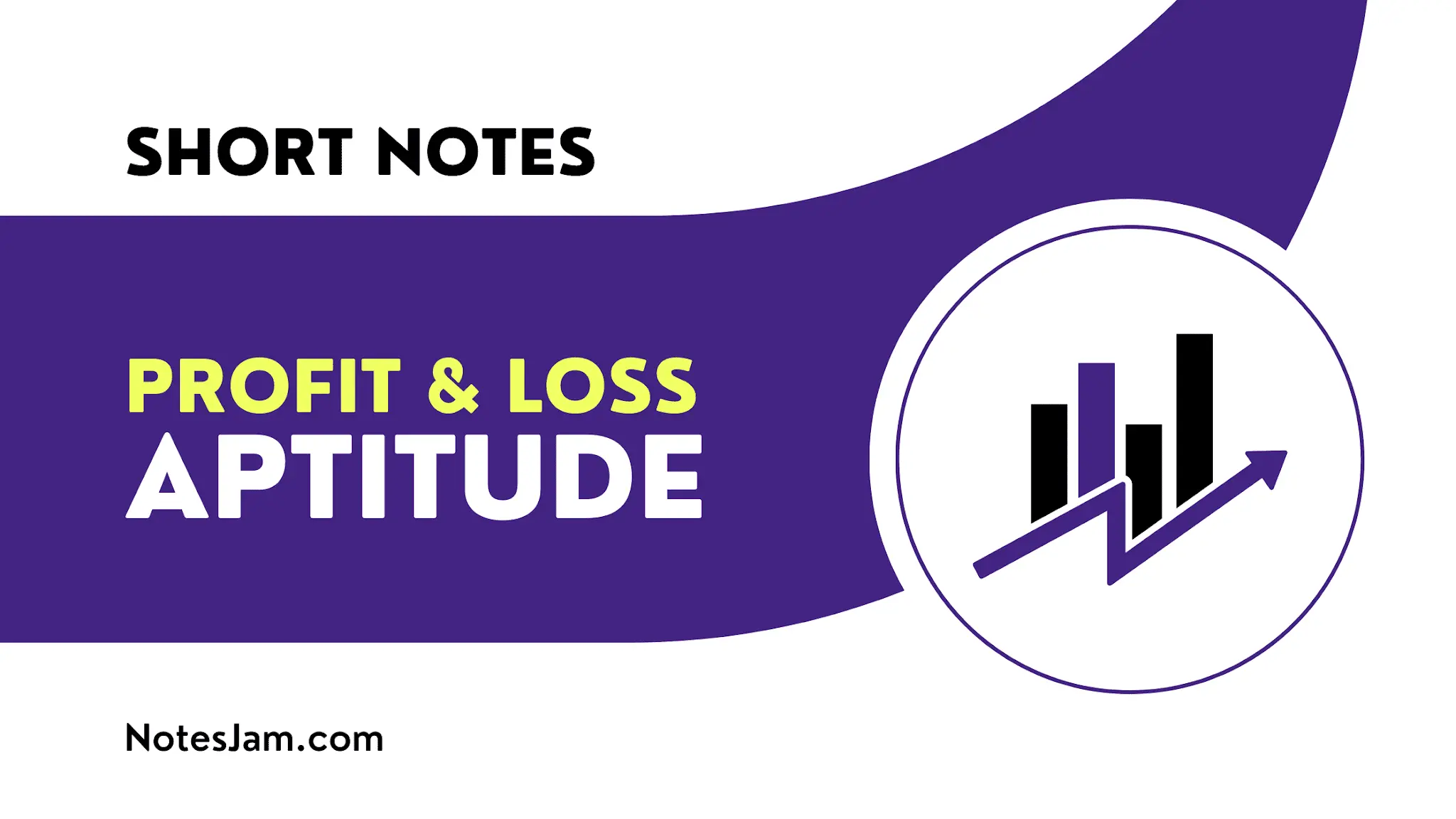Here we discussed the main concepts of quantitative aptitude, which are Profit and Loss. You must know these basic concepts, formulas, and tricks. It helps you to solve problems quickly in your competitive exams.
Cost Price
The price at which a person purchases an item is called Cost Price(CP).
CP = (100 × SP)÷(100 + Profit%)
CP = (100 × SP)÷(100 – Loss%)
Selling Price
The price at which a person sells the item is called the Selling Price(SP).
SP = (100 + Profit%) × CP/100
SP = (100 – Loss%) × CP/100
Profit
If a person sells an item at a price that is more than the actual price, he makes a profit.
Profit = Selling Price(SP) – Cost Price(CP)
Profit% = (Profit/CP) × 100
Loss
If a person sells an item that is less than the actual price, he makes a loss.
Loss = Cost Price(CP) – Selling Price(SP)
Loss% = (Loss/CP) × 100
Trick 1
If the selling price of X goods = Cost price of Y goods then,
Profit% or Loss% = (Goods left/ Goods sold)×100 = (Y–X)×100/X
If Y-X is positive, it returns a profit.
If Y-X is negative, it returns a loss.
Trick 2
If CP1=CP2 and half of the goods are sold at an X% profit and the remaining half of the goods at Y% loss then, the overall or net gain/loss percent is (X-Y)/2
Marked Price
Marked price is also named tagged, displayed, or labeled price. They allow a discount on the Marked Price.
